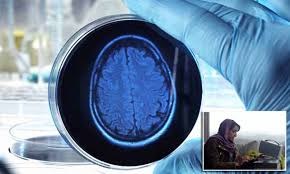
Breaking News
 Ranchers in Washington are challenging the state over a fundamental constitutional question...
Ranchers in Washington are challenging the state over a fundamental constitutional question...
 President Milei launched an account in English but it was suspended by X a few hours later.
President Milei launched an account in English but it was suspended by X a few hours later.
 The Trump Doctrine: "They Have It. We Want It. We Take It."
The Trump Doctrine: "They Have It. We Want It. We Take It."
 Event 201 Pandemic Exercise: Segment 4, Communications Discussion and Epilogue Video
Event 201 Pandemic Exercise: Segment 4, Communications Discussion and Epilogue Video
Top Tech News
 Superheat Unveils the H1: A Revolutionary Bitcoin-Mining Water Heater at CES 2026
Superheat Unveils the H1: A Revolutionary Bitcoin-Mining Water Heater at CES 2026
 World's most powerful hypergravity machine is 1,900X stronger than Earth
World's most powerful hypergravity machine is 1,900X stronger than Earth
 New battery idea gets lots of power out of unusual sulfur chemistry
New battery idea gets lots of power out of unusual sulfur chemistry
 Anti-Aging Drug Regrows Knee Cartilage in Major Breakthrough That Could End Knee Replacements
Anti-Aging Drug Regrows Knee Cartilage in Major Breakthrough That Could End Knee Replacements
 Scientists say recent advances in Quantum Entanglement...
Scientists say recent advances in Quantum Entanglement...
 Solid-State Batteries Are In 'Trailblazer' Mode. What's Holding Them Up?
Solid-State Batteries Are In 'Trailblazer' Mode. What's Holding Them Up?
 US Farmers Began Using Chemical Fertilizer After WW2. Comfrey Is a Natural Super Fertilizer
US Farmers Began Using Chemical Fertilizer After WW2. Comfrey Is a Natural Super Fertilizer
 Kawasaki's four-legged robot-horse vehicle is going into production
Kawasaki's four-legged robot-horse vehicle is going into production
 The First Production All-Solid-State Battery Is Here, And It Promises 5-Minute Charging
The First Production All-Solid-State Battery Is Here, And It Promises 5-Minute Charging
Could the police replay murder victims' memories after they DIE?

Our memories leave a clear and unique genetic mark on our brains.
That's the remarkable discovery of scientists in Israel who say these genetic markers could be used to unlock memories after people die.
The technology opens the door to strange scenarios, similar to those portrayed in the series 'Black Mirror', where investigators can record and playback the memories of suspected criminals.
It could even lead to a future in which police are able to read and replay memories of murder victims to help them piece together the events leading up to their death.
Scroll down for video
Our memories leave a clear and unique genetic mark on our brains. That's the remarkable discovery of scientists in Israel who say these genetic markers could be used to unlock memories after people die (stock)
'It's a fascinating proposal,' said Clea Warburton at the University of Bristol told New Scientist.
'You would have to get in there extremely quickly, as proteins start to degrade within minutes of death,' says Dr Warburton.
'It probably wouldn't give you more information than a good forensic scientist could, but I wouldn't be surprised if we end up with a film about this.'
The discovery was made by researchers from the Hebrew University in Jerusalem.

 Storage doesn't get much cheaper than this
Storage doesn't get much cheaper than this

